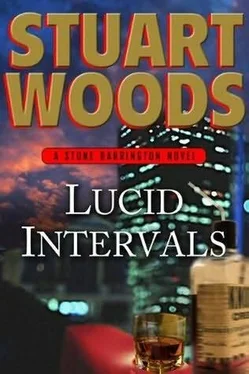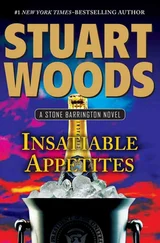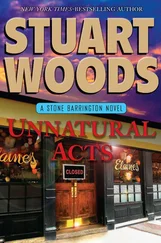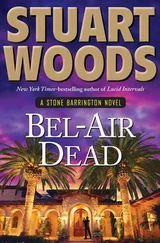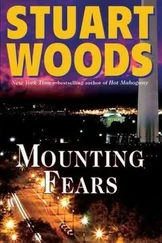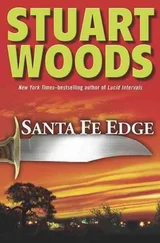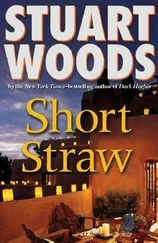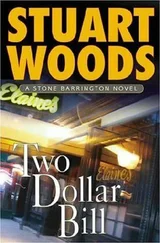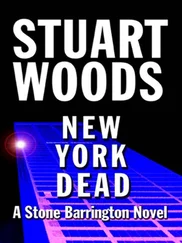“I am.”
“Did he say what sorts of things he’d like me to do?”
“No. In fact he specified that, while nothing he assigns you will be a conflict of interest with Woodman and Weld, the details of your assignments would remain strictly between you and him. I’ll rely on you to avoid conflicts.”
“I will do so.”
Felicity came downstairs and was reintroduced to the Eggerses, then the doorbell rang, and the former commissioner and his wife, Mitzi, walked in. It was the first time Stone had seen them since the wedding. Stone shook the commissioner’s hand, and Mitzi offered him a cheek while Felicity observed, then was introduced.
Jim Hackett was the last to arrive, with a beautiful woman called Vanessa, to whom, Stone surmised, Hackett was not married. They settled in for cocktails, while the waiter brought hot hors d’oeuvres.
“Stone,” Hackett said, “I expect Bill has told you I met with his people this afternoon.”
“Yes, he has.”
“I was pleased with what I heard, and I thank you for arranging it,” Hackett said. “Dame Felicity, it’s good to see you again after so much time has passed.”
“I’m pleased to see you, Mr. Hackett,” Felicity replied.
“It’s just plain Jim, please.”
“And it’s just plain Felicity.” Her gaze seemed to be boring into Hackett. “We met at a dinner party in London some years ago, as I recall.”
“That’s correct.”
“I thought at the time you seemed familiar. Had we ever met before that?”
“No, I don’t believe so, though I did meet your father once, at lunch at the Garrick Club. He was a very impressive gentleman.”
“The Garrick was his favorite,” Felicity said. “I understand you are a native of the Shetland Islands.”
“I am.”
“You grew up there?”
“Yes. My father was a crofter-he tended the sheep-and my mother was the weaver.”
“You’ve made quite a leap from those days, haven’t you?”
“From those days to these required a number of leaps,” Hackett said. “The army got me out, and then I got out of the army.”
“How did you come to be in the security business?”
“I was in the Paratroop Regiment, and on occasion we served as armed guards for various high-ranking officers and other dignitaries. A mate of mine left the regiment and joined a security firm, and then invited me to join when my enlistment was up. The two of us were adept at devising new security procedures, and eventually we went out on our own. My partner was killed in a car-bomb explosion, and I was left with the business.”
“What was his name?” she asked.
“Tim Timmons,” Hackett replied. “He had no family, so his half of the business came to me.”
Stone could practically see her memorizing this information.
STONE HAD PICKED particularly good wines from his cellar, and they went down well at dinner. Even Felicity and Mitzi seemed to take to each other, and Hackett went out of his way to be charming to Felicity. Stone tried to just watch and listen. The waiter appeared to be doing his job with Hackett’s wineglasses.
WHEN THE GUESTS had gone, Stone went into the kitchen and found Bob Cantor. “How did it go?” he asked.
“I’ve got clear prints of the thumb and four fingers of his right hand,” Bob said, handing Stone a sheet of paper. “I’ve scanned and printed them for you.”
“Great job,” Stone said. “Talk to you later.” Stone went back into the living room and handed Felicity the prints. “All five fingers, right hand,” he said.
“Perfect,” she replied. “I’ll get them checked in the morning.”
They went upstairs and undressed for bed. “Well,” he asked, “what did you think about Hackett?”
“I was mesmerized,” she said.
“Was there anything about him that reminded you of Stanley Whitestone?”
“Everything and nothing. First I would think that I had detected some word or movement that was Whitestone, then it would be gone, submerged in Hackett’s personality. He gave a bravura performance.”
“So you think it was a performance?”
“At least to the extent that everyone performs at a good dinner party, and, by the way, it was a good dinner party. You’re an excellent host.”
“I suppose your people will be checking out this Tim Timmons?”
“Oh, certainly,” she said, “and I expect we’ll find that the facts will jibe with Hackett’s account of them.”
“Then why bother?”
“Because everyone makes mistakes, even James Hackett, and when he does, I want to be on top of things.”
“I have to tell you that I’m convinced Hackett is who he says he is.”
“Why?”
“Because nobody could so completely morph his identity into that of another. I mean, you knew Whitestone, and Hackett had no hesitation in talking to you all evening.”
“You know the films of Laurence Olivier, don’t you?”
“Yes, of course.”
“That’s what Olivier did-submerge himself into character-and I think that’s what Hackett has done. I think Hackett is the Olivier of liars.”
“What is Whitestone’s background?”
“You’ve heard some of it: Eton and Cambridge, recruited there.”
“Who was his father?”
“The bastard son of a marquess who was sent into the church and served out his years as a small-parish vicar.”
“Has all that been substantiated?”
“Of course. When one is at both Eton and Cambridge, one leaves indelible footprints that anyone can follow.”
“Hackett says that when Whitestone met him, seeking employment, he said he was Harrow and Sandhurst, son of an army colonel.”
“A person with such a background would leave equally indelible footprints and if he lied would easily be found out. It is impossible to believe that Whitestone would have invented such an easily penetrated legend.”
“What about Hackett’s ‘legend,’ as you put it?”
“More difficult, at least his early years. The Paratroop Regiment is another thing, though. After all, they keep records.”
“And you’ve already read them?”
“It’s being looked into,” Felicity said.
Stone reflected that he would not enjoy Felicity looking into some lie of his own.
Stone was at his desk the following morning when Joan buzzed him. “Mr. Jim Hackett on one,” she said.
Stone picked up the phone. “Good morning, Jim,” he said.
“A perfectly wonderful dinner last night, Stone, and with very fine company.”
“I’m glad you enjoyed it, Jim. We were happy to have you.”
“Dame Felicity turned out to be much more… approachable than I had surmised from our first meeting.”
“A couple of glasses of Champagne will do that.”
“Well, thanks again. Now to business: you’re mine for the next two, two and a half weeks. I’ve cleared this with Bill Eggers, so clear your decks.”
“All right. What do I do?”
“Someone is sitting in your outer office at this moment who will explain everything. I probably won’t speak to you again until you’ve completed your assignment, so have a good time.”
“I’ll try,” Stone said, but Hackett had already hung up.
Joan buzzed. “A Ms. Ida Ann Dunn to see you, representing Mr. James Hackett.”
“Send her in,” Stone said.
A handsome woman of about fifty entered his office carrying a satchel and followed by Joan, who was carrying two other cases. “Good morning, Mr. Barrington,” she said, dropping her heavy satchel on his desk and opening it.
“Please call me Stone.”
“And you may call me Ida Ann,” she replied, hefting a large three-ring notebook from her satchel and dropping it with a thump before him. “Over the next five days or so, you will memorize this,” she said. The cover read Operators Manual, Cessna 510. “And this,” she said, placing a smaller book on top of it, the title of which was Garmin G-1000 Cockpit Reference Guide.
Читать дальше
